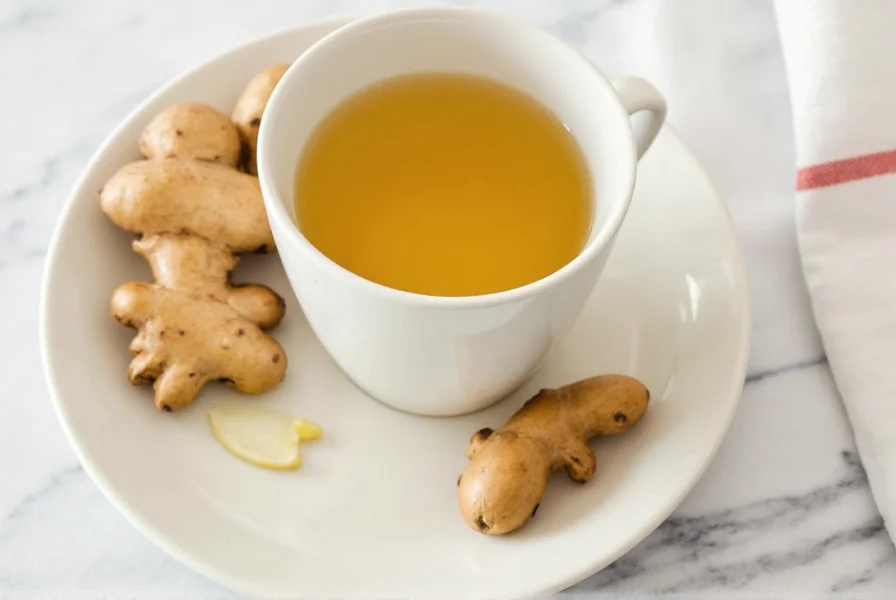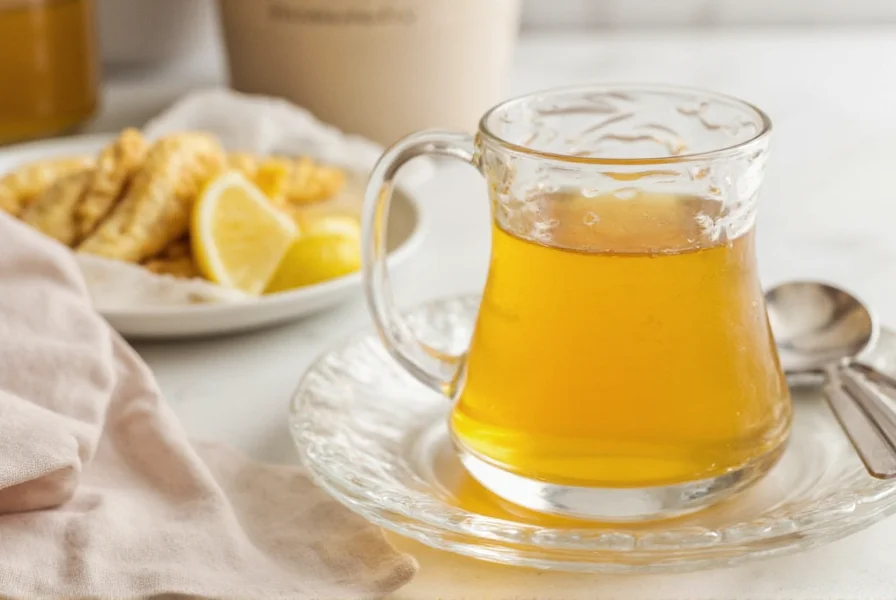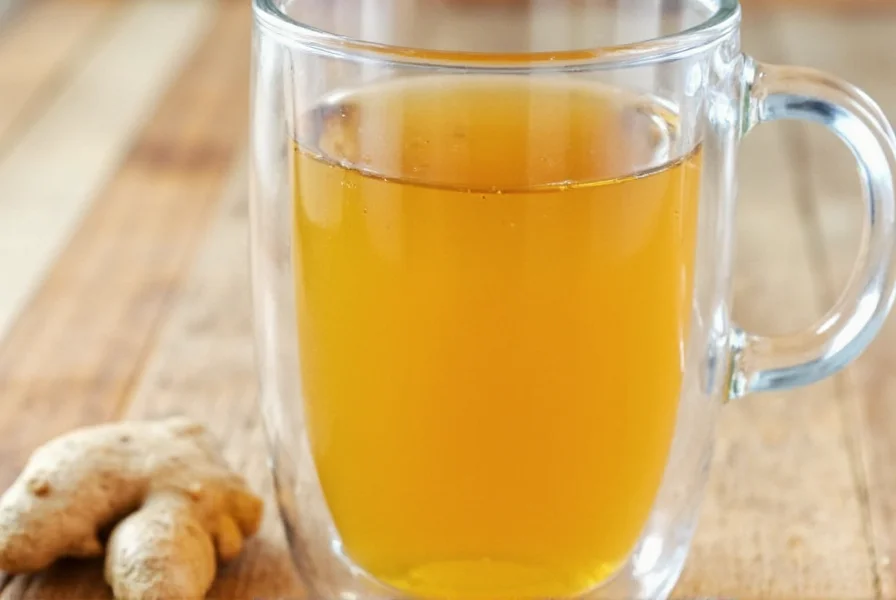Creating the perfect cup of ginger tea at home is simpler than most people realize. This ancient beverage has been enjoyed for centuries across multiple cultures for its distinctive spicy-sweet flavor and comforting warmth. Whether you're seeking a soothing evening drink or a morning pick-me-up alternative to coffee, mastering this basic ginger tea preparation opens the door to countless variations tailored to your taste preferences.
The Wellness Benefits of Ginger Tea
Ginger root contains bioactive compounds like gingerol that contribute to its distinctive flavor profile and potential wellness properties. When prepared as tea, these compounds become readily available in liquid form. Many cultures have incorporated ginger tea into daily routines as part of traditional wellness practices. The aromatic steam alone can be invigorating, while the warm liquid provides comfort during cooler weather or when feeling under the weather.
Essential Ingredients for Perfect Ginger Tea
The beauty of ginger tea lies in its simplicity. You only need three core components to create a satisfying cup:
| Ingredient | Measurement | Preparation Notes |
|---|---|---|
| Fresh ginger root | 1-2 inches | Peel only if skin appears dirty or fibrous |
| Water | 2 cups | Fresh, filtered water yields best flavor |
| Lemon (optional) | 1/2 lemon | Freshly squeezed for brightest flavor |
| Honey (optional) | 1-2 tsp | Add after brewing to preserve natural properties |
Step-by-Step Ginger Tea Preparation
Follow these straightforward instructions for consistently delicious ginger tea:
- Prepare 1-2 inches of fresh ginger by washing thoroughly under running water
- Slice ginger thinly or grate for more intense flavor (grating releases more gingerol)
- Bring 2 cups of water to a gentle boil in a small saucepan
- Add prepared ginger to the boiling water
- Reduce heat and simmer uncovered for 10-15 minutes (longer steeping creates stronger flavor)
- Remove from heat and strain into your favorite teacup
- Add lemon juice and honey to taste, if desired

Popular Ginger Tea Variations
Once you've mastered the basic preparation, experiment with these simple modifications to create different flavor profiles:
- Ginger lemon tea recipe - Add the juice of half a lemon during the last two minutes of steeping
- Ginger honey tea preparation - Stir in raw honey after pouring to preserve its natural enzymes
- Spiced ginger tea - Add a cinnamon stick, a few cardamom pods, or a pinch of turmeric during simmering
- Cold ginger tea recipe - Double the ginger amount and steep in cold water for 4-6 hours for refreshing iced tea
Optimizing Your Ginger Tea Experience
Professional tea makers recommend several techniques to enhance your homemade ginger tea:
- Use organic ginger when possible to avoid potential pesticide residues
- Crush ginger slices slightly with the side of your knife to release more flavor compounds
- Adjust steeping time based on desired strength - 10 minutes for mild, 15+ for robust flavor
- Store fresh ginger in the freezer for up to three months; frozen ginger grates more easily
- Save leftover ginger pieces for a second, milder brew the same day
Storage and Reheating Guidelines
While ginger tea tastes best fresh, you can store it properly for later enjoyment:
- Cool completely before transferring to an airtight glass container
- Refrigerate for up to 3 days (flavor intensifies over time)
- Freeze in ice cube trays for longer storage (up to 3 months)
- Reheat gently on stove - avoid boiling which can create bitter notes
- Add fresh lemon or honey after reheating for brightest flavor

Troubleshooting Common Ginger Tea Issues
Even simple recipes can present challenges. Here's how to address frequent ginger tea preparation problems:
- Too weak flavor - Increase ginger quantity or extend steeping time by 5-10 minutes
- Too strong/spicy - Dilute with hot water or reduce ginger amount next time
- Bitter aftertaste - Avoid over-boiling; simmer gently rather than vigorous boiling
- Cloudy appearance - Normal with fresh ginger; strain through cheesecloth for clearer tea
- Insufficient aroma - Use fresher ginger root or add a small piece of citrus peel
Frequently Asked Questions
How much ginger should I use for one cup of tea?
For a single serving, use approximately 1/2 inch of fresh ginger root per cup of water. This provides a balanced flavor that's noticeable but not overwhelming. Adjust based on personal preference and ginger freshness - older ginger may require slightly more.
Can I make ginger tea with ground ginger instead of fresh?
Yes, you can substitute ground ginger, though the flavor profile differs. Use 1/4 teaspoon of ground ginger per cup of water. Keep in mind that fresh ginger provides more complex flavor compounds and a brighter taste compared to powdered alternatives.
How long does homemade ginger tea stay fresh?
Properly stored in a sealed container in the refrigerator, ginger tea maintains good flavor for 2-3 days. The flavor actually intensifies slightly as it chills. For longer storage, freeze in ice cube trays and transfer to freezer bags, where it will keep for up to 3 months.
When is the best time to drink ginger tea?
Ginger tea works well at any time of day. Many people enjoy it in the morning as a caffeine-free alternative to coffee, while others prefer it in the evening for its soothing properties. Those using it as part of traditional wellness practices often consume it before meals to support digestion.
Does ginger tea contain caffeine?
No, pure ginger tea is naturally caffeine-free since it comes from the ginger root rather than the tea plant (Camellia sinensis). This makes it an excellent choice for evening consumption or for those sensitive to caffeine. Always verify ingredients if using commercial tea blends that might contain actual tea leaves.











 浙公网安备
33010002000092号
浙公网安备
33010002000092号 浙B2-20120091-4
浙B2-20120091-4